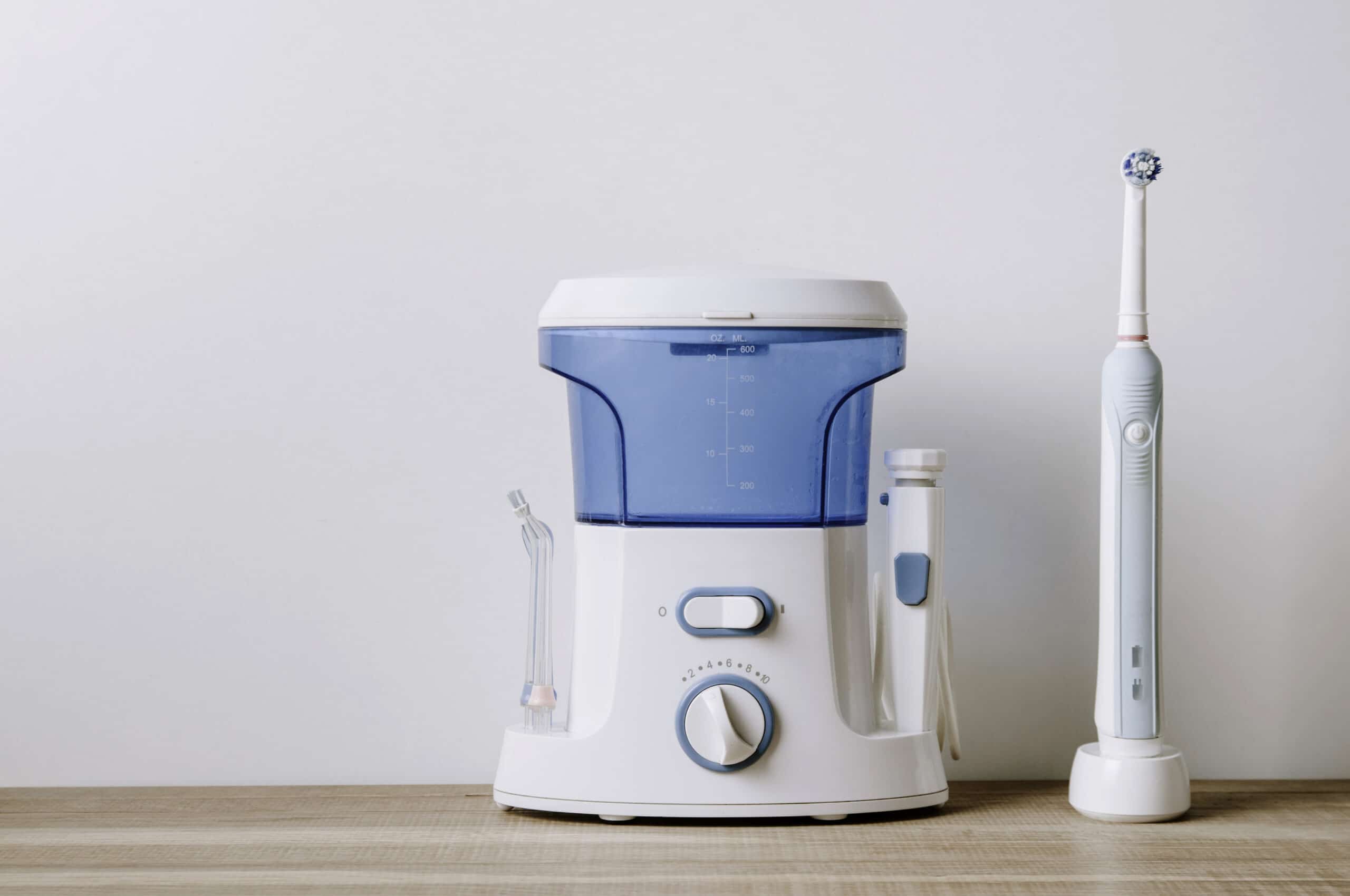Regular brushing and flossing your teeth is part of good oral hygiene, which helps keep cavities and gum disease at bay. Most people likely use waxed or unwaxed floss string, or even dental floss picks to floss their teeth. However, there is an alternative to traditional flossing methods — at-home water flossers. Water flossers offer many dental patients an easier, more effective flossing tool compared to traditional floss.
What Are Water Flossers?
Water flossing is an alternative to normal flossing that uses an oral health appliance to clean between teeth with water. Water flossers rely on a pressurized water stream to remove the bacteria, plaque, and food debris that gets stuck between your teeth and under your gumline.
While normal dental floss string relies on the thread coming in physical contact with your tooth’s surface and gum tissue, water flossing is powered by a gentle water stream. Water flossers work similarly to how you would clean your deck with a pressure washer. The water pressure lifts, dislodges, and moves unwanted plaque and food particles. You might prefer to use water floss if you:
- Have braces
- Have crowns
- Have non-removable bridgework
- Have dental implants
- Have arthritis or have difficulties maneuvering regular floss
There are two main types of water flossers: countertop and cordless. Some people prefer countertop flossers since they can provide more water flossing benefits, including high water pressure. Cordless water flossers are convenient for those who travel often or want to use less counter space. The Waterpik is the most popular water flosser on the market and offers a variety of water floss products. Many patients also find success with Phillips Sonicare Airfloss.
Why You Should Use Water Flossers
Flossing is recommended as part of a sufficient oral hygiene routine. Flossing is especially important for gum health and helps prevent plaque and tartar buildup that can lead to gingivitis or advanced periodontitis. Gum disease and bleeding gums start through an increase of pathogenic bacteria. These bacteria colonies thrive in the hidden pockets between your teeth.
If you want to keep your teeth and gums healthy, flossing is a necessity in your oral hygiene routine. However, many dental patients may experience problems or complications that defer them from regularly flossing. The most common problems with flossing are:
- It could cause minor bleeding, particularly if you don’t do it regularly
- It’s difficult to reach certain areas of your mouth with floss
- It can sometimes be hard to handle for some individuals
- It can cause or worsen gum sensitivity
- It’s not ideal for patients with dental work or braces
Pros of Water Flossing
According to the American Dental Association (ADA), water flossing removes 99.9 percent of plaque biofilm. Unlike traditional floss, water flossers are easy to use and navigate throughout the crevices of your smile to rid your teeth of plaque and food particles. Water flossing is also gentle on sensitive gums, dental restorations, and braces. Water flossing offers many advantages over regular string flossing, including:
- Helps reach those hard-to-reach places in your mouth
- Cleans the shallow periodontal pockets potentially due to early gum disease and the tightly spaced teeth
- Simple to use for those with dental restorations or braces
- Gentle on sensitive gums
- Easier to use than traditional floss
- Reduces gum inflammation
- Improves gum health
- Helps to keep your breath fresher longer
Both regular string flossing and water flossing are ideal ways of taking care of your gums and teeth in addition to brushing. If you’re seeking an alternative to floss, a water flosser might be the perfect option to add to your oral hygiene routine. We recommend talking to your dentist for their specific recommendations on flossing to support your optimal oral health.
Triangle Dentistry, located in Raleigh, NC, provides a state-of-the-art facility that offers exceptional general dental and specialty services guided by empathy of a patient’s needs and desires. Services range from dental crowns to veneers and whitening procedures. For further information, questions, or to schedule an appointment, contact the office at (919) 747-3608.
